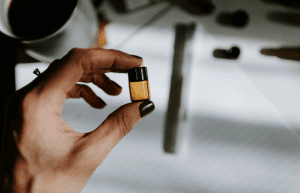Stay in touch with friends and family. Even when you can’t be together physically, discussing your concerns with people you trust will somehow ease the worries and loneliness.
2020 changed life as we know it. It has only been about four months, but COVID-19 has already disrupted almost every aspect of day to day living. With the number of positive cases continuously rising and strict stay-at-home in orders in place, we have very little choice but to adapt to a life where self-quarantine and social distancing is very much a part of our daily routine.
By now, many of us are getting used to the new normal. Still, you have to admit that the many uncertainties brought forth by this pandemic leave many of us worried, stressed, and anxious – and while these are typical responses to any force majeure events, some are having a harder time coping than others.
Before the COVID-19 outbreak, people used to travel, go outdoors, or meet-up with friends and family to manage stress and anxiety. But ever since things flipped upside down, these simple pleasures have become challenging to do
In these stressful and trying times, the proper CBD dosing can ease the psychological effects of quarantine and keep stress and anxiety at bay.
How CBD Oil Can Help Your Stress and Anxiety During COVID-19
Even if you’ve never tried using CBD oils and other CBD products before, you’ve probably already heard of its calming and relaxing effect.
CBD is the common term for cannabidiol, one of the many cannabinoids found in cannabis plants, including hemp and marijuana. Unlike THC or tetrahydrocannabinol, though, CBD won’t get you high or cause any psychoactive effects. On the contrary, CDB and CBD-derived products are widely known as a remedy for various medical conditions, including anxiety.
Way before the CBD market grew to what it is right now, the compound has long been touted as a potential treatment for different types of anxiety disorders. One study in 2011 reported that CBD has helped reduce the overall anxiety levels of people with social anxiety disorders. In another 2019 study, 80% of outpatients showed signs of improvement after receiving CBD for three months, in addition to their regular treatment
While studies to fully understand how CBD works as a treatment for anxiety and other disorders are still underway, it is believed the calming and relaxing effects of CBD has something to do with how the compound interacts with the body’s endocannabinoid system.
Yes, the human body is also capable of producing cannabinoids, called endocannabinoids, which plays a role in functions such as sleep, memory, mood, and behavior. When CBD enters the body, it interacts with the endocannabinoid receptors in the brain and helps modulate the body’s stress responses and emotional learning.
CBD helps manage anxiety by easing the neural activity in the brain’s stress areas; thus, quieting stress signals. Moreover, CBD may also regulate the secretion of cortisol, a hormone associated with fear, stress, and anxiety.
Managing Stress in the Time of COVID-19
Of the several CBD products on the market, CBD oils are believed to be better suited for anxiety because it has a quicker onset of effects. If you’re just about to start using CBD for anxiety, it’s recommended to begin your treatment with medium doses (15mg – 20mg) of CBD and observe the effects. Some people will require a lesser or more potent dose to achieve the desired result.

Still, it would be best not to rely on CBD alone to manage chronic stress and anxiety. You should also take care of your physical and mental health through exercise and meditation, and make sure to get enough sleep. If you can, limit social media use, as the influx of distressing and fake news can heighten your anxiety.
Also, stay in touch with friends and family. Even when you can’t be together physically, discussing your concerns with people you trust will somehow ease the worries and loneliness. And remember, if stress or anxiety becomes too overwhelming, talk to your physician.


Join the conversation!